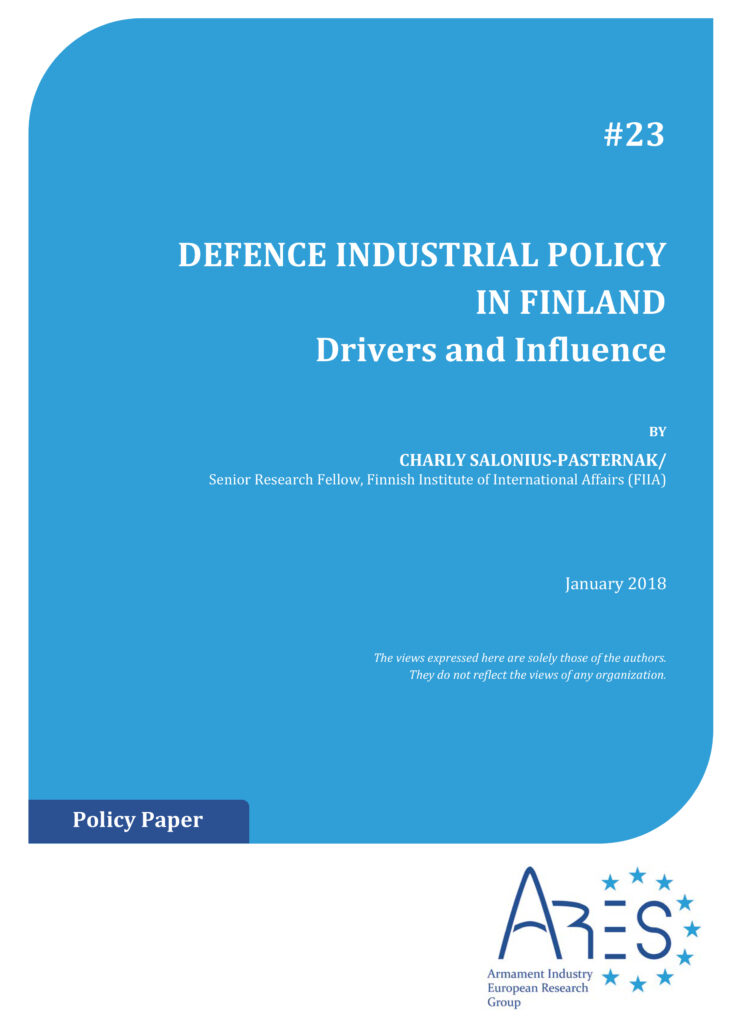Notes / Ares Group - The Armament Industry European Research Group
9 janvier 2018
Defence Industrial Policy in Finland. Drivers and Influence

The key drivers for Finland’s defence industrial policy are a desire to maintain a robust national defence capability, openness to increased cooperation with EU and NATO and continuing non-membership in a military alliance (NATO). This has consequences for industrial participation and security of supply.
Firstly, Finland’s domestic defence industry is an integrated part of national defence, through a broad range of strategic partnerships. Secondly, Finland focuses on security of supply (huoltovarmuus), from the ability to store and import food and energy to being able to independently upgrade and service critical military equipment.
Because Finland does not belong to a military alliance, it retains a broad range of military capabilities for independent use. However, continually developing those capabilities demands cooperation, including with the international defence industry. Finland’s domestic industry therefore focuses on developing niche products which it sells itself or through resellers. Alternatively, it cooperates with a large international ‘prime contractor’ with the aim of either ‘rebadging’ or having the product or service integrated into a larger whole. Independence of use, huoltovarmuus, and continuity are the key tenets of Finland’s defence industrial cooperation…

